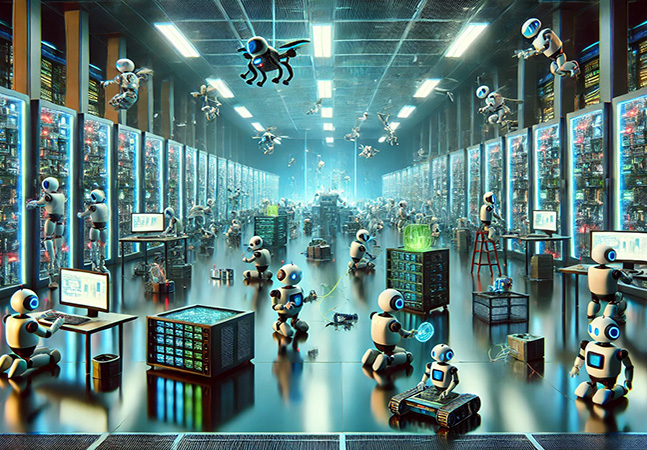
Once thought to be lagging behind fellow cloud giants Microsoft and Google in advanced AI, Amazon Web Services (AWS) is maintaining a full-on crusade to even things up -- or more.

AWS dominated fellow cloud giants in a new report from Clazar that examines how software vendors are leveraging cloud marketplaces and co-sell programs to drive revenue, accelerate deals, and deepen collaboration with hyperscaler sales teams.

AWS topped one ranking that identified the most defining skills for tech professionals on LinkedIn, and also ranked highly in a separate list of the top 10 specialized skills cited in U.S. AI job postings.

For years AWS has dominated cloud computing surveys of all types, continually edging out Microsoft (Azure) and Google (GCP) in that order, no matter the metric. A new survey of the Managed Service Provider space bucks that trend.

"What if your AI assistant could instantly access deep AWS knowledge, understanding every AWS service, best practice, and architectural pattern?"

The AWS cloud was featured in a new report from Tenable on cloud AI risks, especially the Amazon SageMaker offering, where root access vulnerabilities were found to be widespread.

First announced last year at the AWS re:Invent 2024 conference, it furthers the company's agentic AI story, one of the hottest areas of AI development.

In the Forrester Wave report for Q4 2024, AWS leads the "strength of offering" axis in the Leaders grouping, which is also charted by a "strength of strategy" axis. Fellow leaders are familiar: Microsoft, Google Cloud and Alibaba Cloud.

AWS announced Anthropic's Claude 3.7 Sonnet is now available in Amazon Bedrock, providing what Anthropic claims is the first hybrid reasoning model on the market.

AWS was early on seen by many as coming late to the cloud GenAI party compared with fellow cloud giants Google and especially Microsoft, which got a head start with OpenAI's GPT breakthrough, but that's changing.

Despite controversy, Amazon is encouraging use of the Chinese tech by developers in the AWS cloud, explaining when to use which of its offerings for what.

Tech education specialist Pluralsight predicted great things for AWS Bedrock in a new report examining the top tech trends, tools and skills for the new year.

Careers firm Dice is out with a mammoth 2025 tech salary report in which one Amazon skill cracked the top 10 list of skills that paid the most last year.

As cars morph into mobile computers, the SDV movement has grown, with AWS now furthering the tech in collaboration with prominent industry player HERE Technologies.

Here's a catch-up of AI news announced by AWS since Nov. 20, 2024, a Monday when many people started their seasonal vacations, ranging from updates to the Amazon Q dev tool to support for latency optimized models.

The rise of disinformation -- like lies from political figures -- was an existing problem only compounded by the advent of generative AI that can create realistic images, video and audio. As such, it provided a unique topic for 2025 tech predictions from Amazon CTO Werner Vogels.

The announcement of Nova foundational models kicked things off, but there was much more about AI at the conference you should be aware of.

The years-long problem of misconfigured S3 storage buckets on the AWS cloud has surfaced again, exposing sensitive data from customers despite tons of warnings, guidance, documentation and advice from AWS and other providers.

A new AWS Security Incident Response service heads a bevy of security, identity and compliance announcements at this week's AWS re:Invent conference.

The new family of models follows the trend of moving from huge all-in-one, jack-of-all-trades constructs to more specialized models designed to more nimbly handle specific tasks.